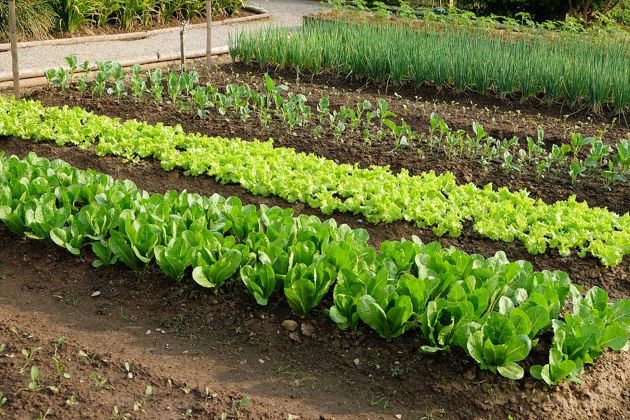
Written By
Hannah Gray
College
College of Science and Engineering
Publish Date
18 November 2019
Related Study Areas
Community gardens as cultural spaces
Community gardens are important to both our environment and our society. They are places to preserve, and they promote not only plants but culture too.
JCU Environmental Management Honours student, Rachael Walshe, is exploring the importance of community gardens as cultural spaces.
Nestled at the base of the mountains and hidden behind the library is JCU Cairns’s very own miniature paradise. A community garden providing not only a bounty of 80 species of edible plants, but also a space for students, staff, and others to enjoy the richness of both our tropical environment and our diverse community.
Sit in the shade provided by a repurposed bus shelter or the tall, leafy trees. Or soak up the sunshine in the open space and engage in activities like yoga or badminton. Better yet, dive in and get your hands dirty while you help to cultivate a beautiful and plentiful tropical garden. As Rachael Walshe says, the community garden at JCU Cairns is “a little slice of heaven”.
And Rachael would know. As an Honours student at JCU pursuing the furthering of environmental engagement, Rachael is passionate about the importance of gardens and gardening as a skill.
“I grew up on a farm in rural Australia, so I’ve always had a vested interest in farming and gardens,” Rachael says. “I started studying nutrition at university, but I realised I was more interested in the growing and gardening side of it rather than the nutritional aspect, so I moved into Environmental Management.”



Bringing people together
Rachel’s research highlights the pressing need for sustainability and the importance of gardening as a skill for the average person, as well as how community gardens have environmental, economic, and social impacts.
Environmentally, community gardens positively impact the urban micro-climate, reduce communal waste through composting, help improve air and soil quality, and much more. Economically, community gardens provide access to fresh foods for those who may not be able to afford them, improve food security, and can even create opportunities for volunteers to sell food at markets.
These are important aspects, but for Rachael, it is the social elements involved with community gardens that ignite her passion and are the basis for her thesis.
“I’m looking at whether community gardens on tertiary campuses can facilitate and improve relations between Indigenous and non-Indigenous students and faculty,” Rachael explains.
“The community garden is a place that brings people together from all different backgrounds and cultures and ideologies. Embracing and seeking to understand our differences is vital to society, especially on a university campus, which is primarily a place to learn and grow.”
Rachael explains that her work is also a response to a consistent notion in community garden research. “The over-arching theme in community garden literature is that communities in the world today lack a sense of community,” Rachael says.
“The point of projects like this is to facilitate and cultivate a sense of community. Gardening can develop and improve an individual’s sense of confidence and pride, which provides a foundation for that person to connect more easily with others, especially others in their garden.”
Although her thesis focuses on Indigenous and non-Indigenous relations in Australia, Rachael knows that a community should include and welcome all people.
She feels she has a responsibility to effect change in this area.
“Whatever I do in this world, I want to strive for unity. As a white woman, I feel I should be using all the resources available to me to pursue this, especially for those who don’t have the same privileges as I do.”
Rachael Walshe, JCU student
“Through this project, I want to question why we—the different people groups on campuses—aren’t interacting and engaging with each other more, and then to provide a space for us to do so.”
On top of this social emphasis, Rachael has other goals for her project as well. Rachael hopes that growing traditional and native plants in community gardens will raise awareness about how plants can be used in society, be it in food or medicine.
Rachael also wants to teach others about using climate-smart agriculture to effect real and sustainable change. Additionally, Rachael aims to implement standards for community gardens into university policies.
At the root of her project, though, is connection. “When I moved here from the Sunshine Coast, I didn’t know anyone,” Rachael says. “I learned quickly the danger of loneliness and the importance of connection. I believe that community gardens can provide the space to connect not just with nature, but with people.”

Featured researcher
Rachael Walshe
PhD Candidate
Rachael Walshe is a PhD Candidate in the Doctor of Philosophy (Society and Culture) at James Cook University. She has a Class I Honours in Human Geography and a Bachelor of Environmental Management (Sustainability and Human Geography).
Rachael’s research explores environmental education, food resilience and environmental belonging. Her thesis focuses on the effect of environmental generational amnesia on children’s perceptions of food and nature.